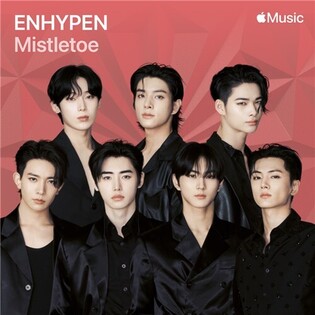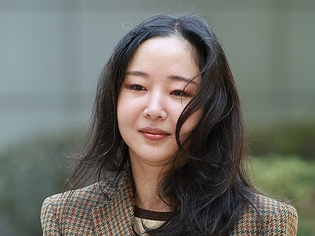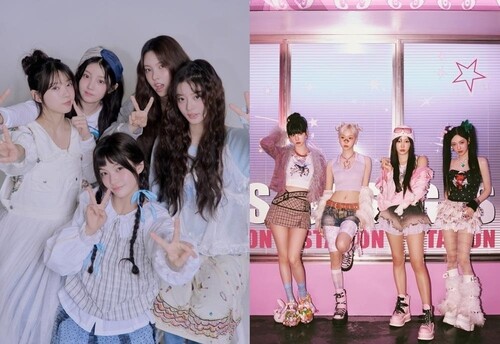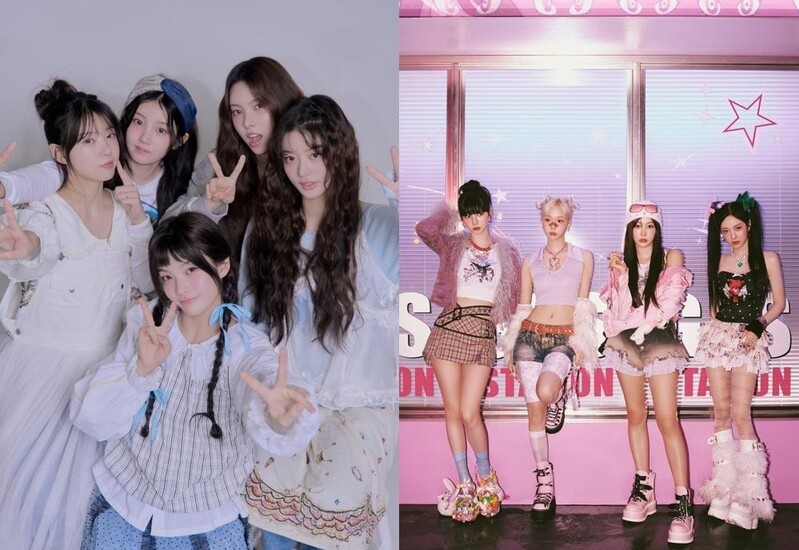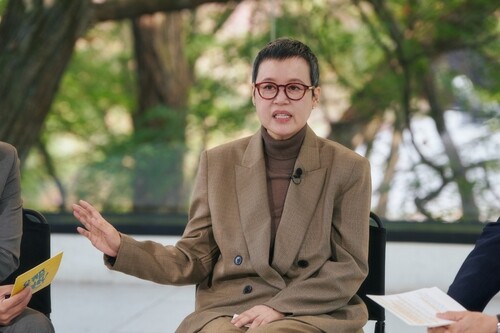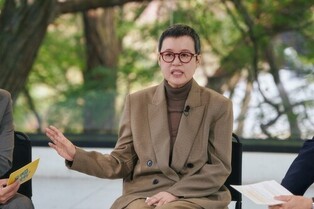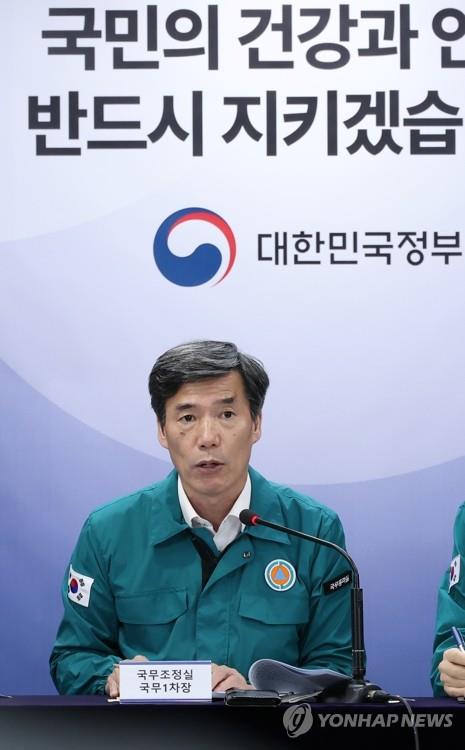 |
| ▲ Park Ku-yeon, the first deputy chief of the Office for Government Policy Coordination, speaks during a daily briefing on the Fukushima issue in Seoul on Aug. 22, 2023. (Yonhap) |
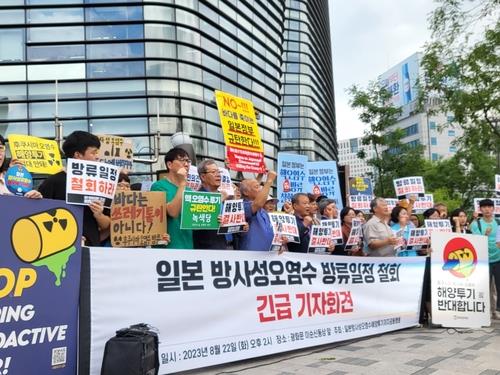 |
| ▲ An environment group holds a press conference in front of the Japanese embassy in Seoul in central Seoul on Aug. 22, 2023, in protest against Japan's plan to release contaminated water from the crippled Fukushima plant. (Yonhap) |
(2nd LD) S Korea-Fukushima
(2nd LD) S. Korea says Fukushima release plan has no scientific, technical problems
(ATTN: UPDATES with more info in last 6 paras; ADDS photo)
By Kim Han-joo
SEOUL, Aug. 22 (Yonhap) -- South Korea sees no scientific or technical problems with Japan's plan to release radioactive water from its crippled Fukushima nuclear plant into the ocean later this week, an official said Tuesday.
Japanese Prime Minister Fumio Kishida announced earlier that the release of Fukushima water will begin Thursday. Last month, the International Atomic Energy Agency (IAEA) gave final approval to the discharge plan, saying it meets international standards.
"Our government has judged that the Japanese side will discharge the contaminated water from the Fukushima nuclear power plant as originally planned and has determined that there are no scientific or technical problems with the planned discharge of the contaminated water," said Park Ku-yeon, the first deputy chief of the Office for Government Policy Coordination, during a daily briefing on the Fukushima issue.
Park, however, clarified that the South Korean government neither approves nor opposes the plan.
Seoul will also request that the discharge be stopped immediately if the concentration of radioactive material in the water exceeds standard levels and that Japan promptly inform South Korea, according to Park.
The two countries have held three rounds of talks to discuss follow-up measures after President Yoon Suk Yeol asked Japanese Prime Minister Fumio Kishida to include South Korean experts in monitoring the Fukushima water release.
During the talks, the two sides have also agreed on regular visits by South Korean experts to the IAEA on-site office located in Fukushima, according to Park.
Also, the IAEA will share the latest information regarding the release plan with the Seoul government and will hold video conferences regularly.
The Japanese government will also upload data, such as the radiation level, the flow rate of contaminated water and the level of tritium, a hydrogen radioisotope known to still be detected after treatment through ALPS, on the website on an hourly base.
The Fukushima plant has stored more than 1.3 million tons of water through a custom purification system known as ALPS since three reactors melted down after a powerful earthquake struck off the coast in 2011.
In the wake of the meltdown incident, South Korea has banned all seafood imports from eight Japanese prefectures near Fukushima since 2013 due to concerns over their radiation levels.
"Our government will focus on the health and safety of the people and respond transparently and promptly, while doing its best to minimize damage to fishermen and the fisheries industry," Park said.
Under the plan, the Seoul government will widen the scope of areas subject to regular radiation monitoring beyond its territorial waters, according to Park.
Since late July, the Seoul government has conducted regular monitoring checks at 200 sites within its waters.
"The government plans to proactively investigate the impact of contaminated water in the early stages of release by expanding the monitoring area beyond our waters," Park said.
The government will also move forward with joint research with countries in the Pacific region on radiation in the waters by 2025.
Despite the IAEA's approval, environmentalists and the main opposition Democratic Party (DP) have strongly denounced Tokyo's plan, saying it will destroy the environment.
The DP said it will declare a state of emergency, vowing to fight against the release of the contaminated water, including calling for international support, and make efforts in the parliament.
(END)
(C) Yonhap News Agency. All Rights Reserved


















